Assignment 1 - Human Nature Relationship
Part A:
Reflect on your human-nature relationship. You may want (may not, which depends on your approach to this essay) consider the following questions: What are your personal ideas and beliefs about nature? How are your personal beliefs and ideas shaped by your cultural worldviews? How do these personal/cultural beliefs and ideas impact your everyday behavior?
People’s life experiences, cultural worldviews, and education about nature can affect their ideas and beliefs about the things they consume in their lives. I will be analyzing my life experiences, on how they have shaped my decision-making to be less impactful on nature. Most of my experiences that contribute to my human-nature relationship positively, have been shaped by culture (homelife), education (university) and media (documentaries, YouTube, movies and shows):
- I thrift where I can, and try to be cautious about purchasing material things by waiting on the decision for a while, and I am excited to try and live a more zero-waste. I enjoy going to the Salvation Army thrift stores and Plato's Closet thrift stores.
I like picking up litter when I see it. This started after I saw a show called "Years & Years" which follows a family over the years as they face things we hope for in the future and the things that we fear regarding climate change. The show left me feeling that I should be doing things in the present and not pushing them to the future, or thinking things like: "That's not my litter", "Oh, it won't happen in my lifetime", "Disasters aren't happening in my area so it's not like 'I' can do anything".
- As a young woman feeling uncomfortable with my changing body and not enjoying products (pads or tampons) that were presented to me. This made me open to trying new products, so after seeing an advertisement for a reusable menstrual cup on Snapchat, and though a $40 purchase was expensive for my 16-year-old self, I spontaneously bought it. Looking back it was my first eco-friendly purchase. It has been a good investment in my life so far because menstrual cups last 5-10 years in the past 8 years I have only spent $80 on them, and it is estimated that women “spend up to $6000 on menstrual products in their lifetime” which is about 40 years of having periods. Based on I will likely be spending less than the average woman on menstruation products. Also according to Sharma & Rawat (2023) menstrual cups’ “affordability, less environmental impact, and favorable health consequences” trumps one-time-use products like pads and tampons. Since the lifecycle of pads and tampons “pollutes water bodies and landfills, leading to microplastics and other environmental and health hazards”.
- Education/studying this topic is going to educate me on the environmental impacts of my choices, so I hope I will make even better choices in the future that help the planet. I am interested in trying out activism and sharing the knowledge I learn. During the start of my studies in environmental/geography path at university, I took an online permaculture design certificate (PDC). This PDC course made me hopeful and sure about my choice of studies because at university we mainly focus on all the issues facing nature/Earth (which makes the future seem a little doom and gloom), but the PDC course was refreshing because it said we know about the problems of climate change lets focus on the solutions. The course taught me to be hopeful and to dream, I would like to implement the things I learned in this course into my life.
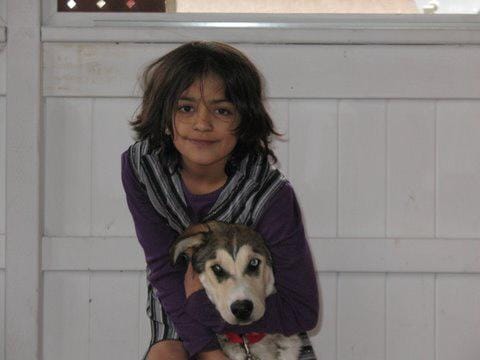
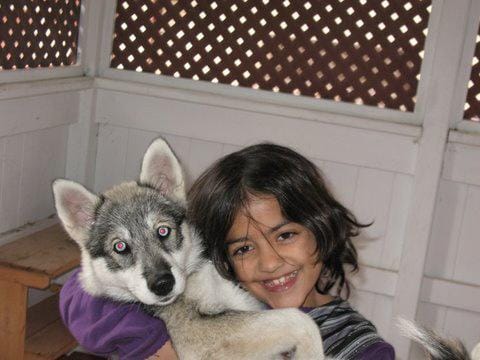
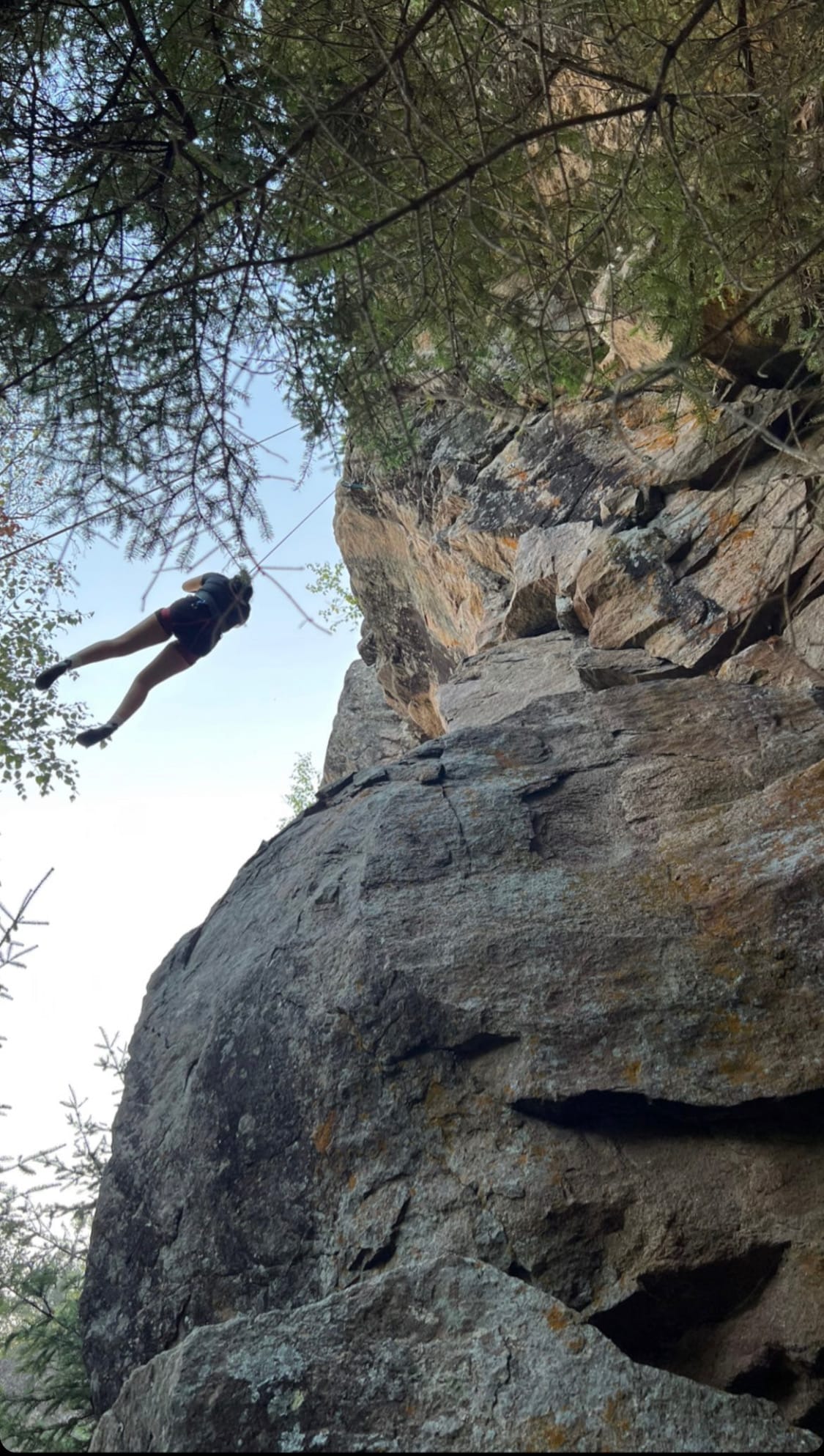
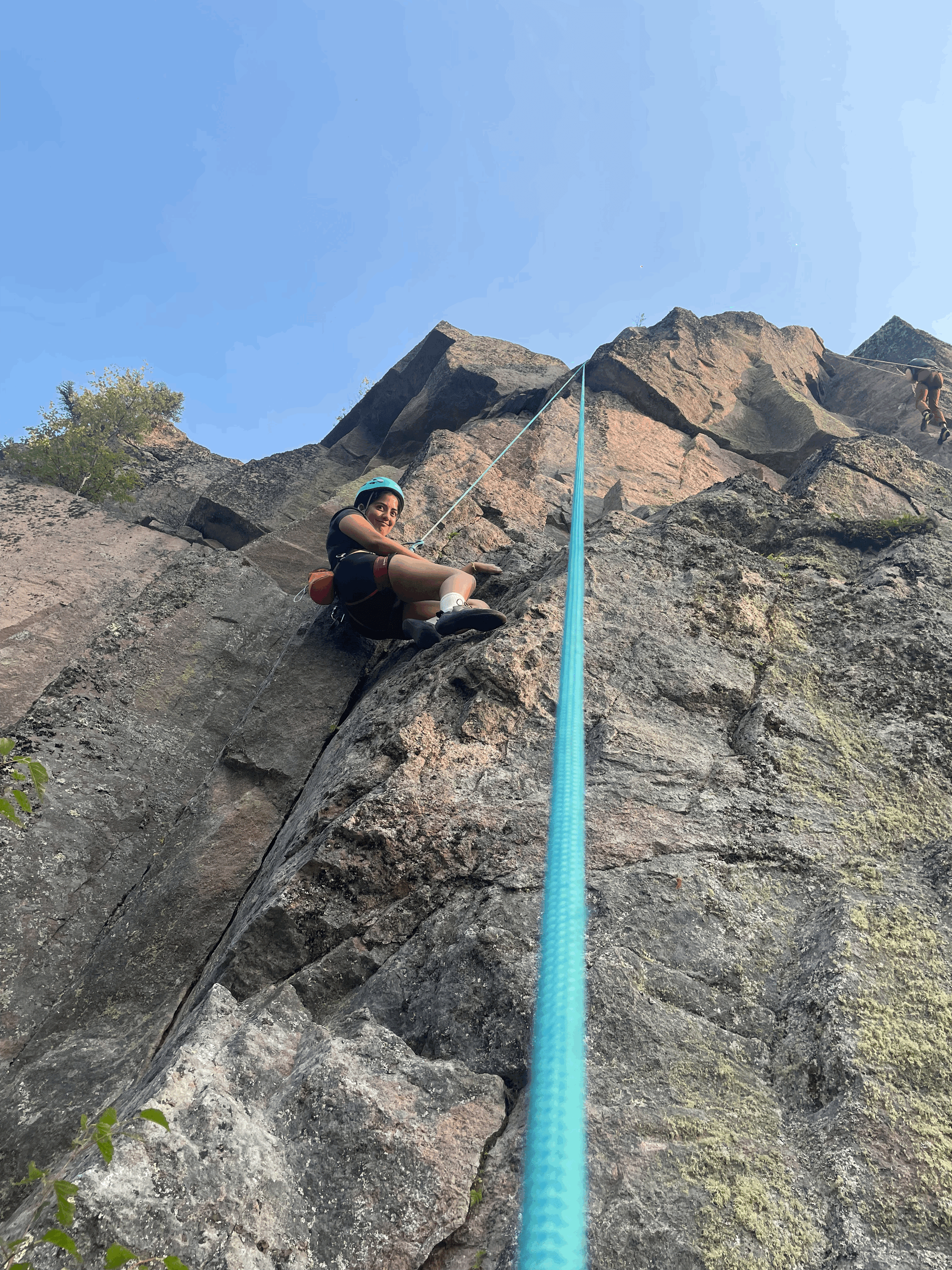
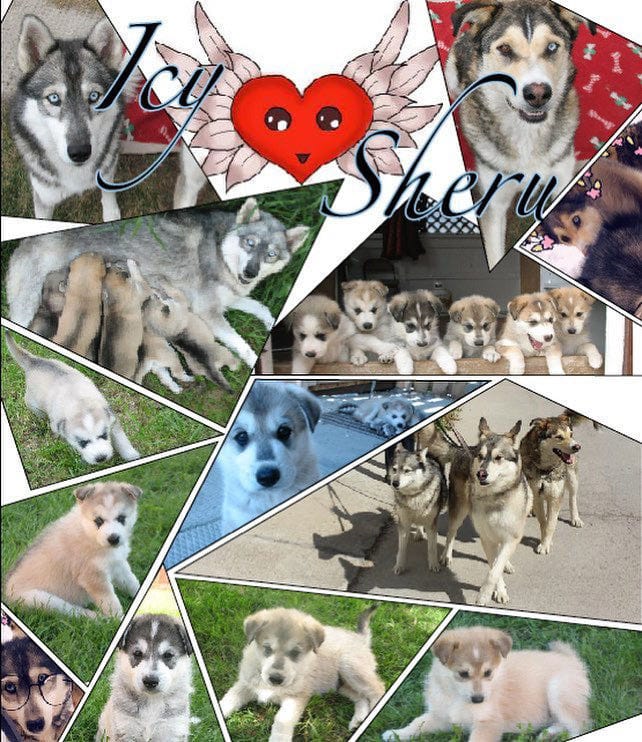
My love for the outdoors started from having two dogs at a young age, it created my joy for hiking and exploring new experiences in nature.
I was born into an Indian vegetarian family, and a few years ago I discovered veganism because of this YouTube video. The video convinced me to be vegan after presenting the suffering and environmental damage behind animal products. This plant-based transition wasn't too difficult since Indian food is naturally a lot of vegetables, lentils, beans, rice, and grains.
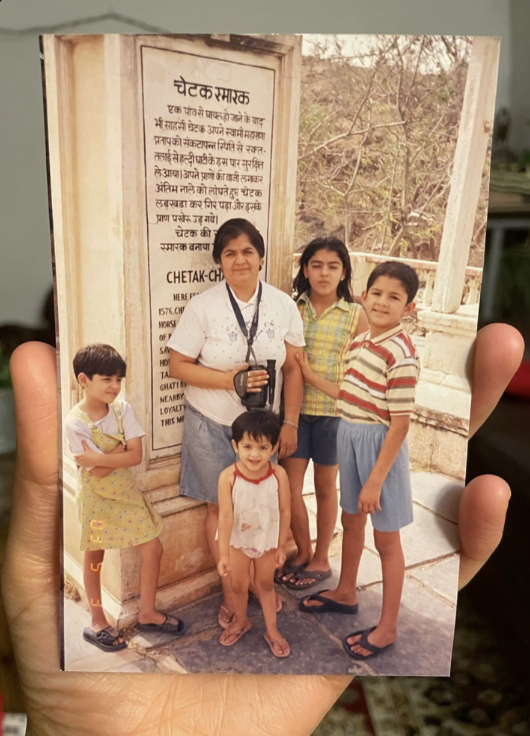
My ideas and beliefs about nature are that we should respect nature and replace the damage we cause so that Earth can continue to support life. This is hard because nature doesn't have a voice, meaning it is hard to feel regret when we harm nature, so it is important to advocate and hold everyone/companies accountable by making everyone's actions transparent in the damage they cause. I believe we can vote with our money to create the change we wish to see.
I feel that we are disconnected from nature today because we rarely know the entire lifecycle of the products we consume and marketing blurs this line further. I think that everyone's unique experiences in life shape the choices they make in life so if everyone had more experiences and education on nature, it could be a step in the right direction.
Part B:
Provide your reasoned opinion of the following statement:
All of our human actions are to be understood primarily if not exclusively with reference to the physical world of climate, landforms, soils, and vegetation.
I believe this statement to be true because humans have a profound impact on the environment around us and globally especially because of how industrialized and globalized the world has become today. The smallest plastics, clothes and products we consume stay in our lives for a short amount of time and the creation and disposal of these materials can end up anywhere. Like microplastics in our waterways and food. A bad sewage system impacts the soil and vegetation.
Landforms change due to the demand for foods or goods made from trees, and more deforestation due to monoculture farms, human land demand or cities expanding. Landforms also change due to city demand like, hydro energy affecting the way a river flows. Unclean energy use and non-renewable resources create greenhouse gases and in general, can alter Earth's balanced systems. Examples of unclean non-renewable energy, are the use of fossil fuel (natural gas to heat houses, crude oil and petrol to power vehicles, plastics as the byproducts of fossil fuels), coal made from trees, and nuclear energy. Agriculture and animal agriculture can also degrade the soils, landforms, vegetation, and physical world of climate (by releasing methane from animal agriculture, methane is a greenhouse gas that affects climate change. Also, all the chemicals we use today without knowing their full impacts on human and environmental health are/have likely affected our, soils and vegetation because of runoff.

Our odd urban planning that creates concrete jungles and runoff hotspots is probably not helping our soils retain water and nutrients. Slowly just letting the wind and water erosion carry away all the nutrients from our soils.
Single-use plastics and the clothing waste resulting from fast fashion are affecting the planet (landforms, soils, and vegetation), and it is probably affecting the physical world of climate as the discard of fossil fuel these products are made from decomposes into the environment/oceans and seeps into the different animal food chains, and waterways.
The oceans are being abused with landscapes of garbage patches from this single-use human lifestyle.
Part C:
Provide a factual statement on the following topic:
Environmental problems in any one Asian country


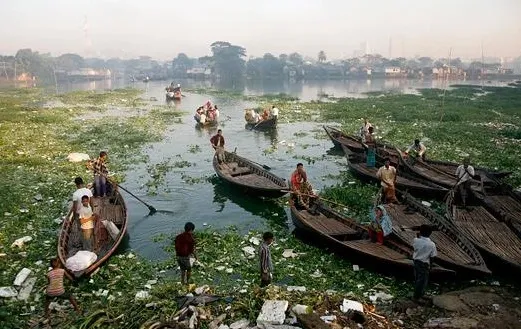
My opinion: Bangladesh has a polluted air quality and landscape to prove the environmental damage outcome of fast fashion and single-use plastics. It is an example of developed countries selling their garbage to developing countries.
Clayton H. Riddell Faculty of Environment, Earth, and Resources, University of Manitoba
GEOG 2630: Geography of Culture and Environment
Dr. Olga Shugurova
Member discussion